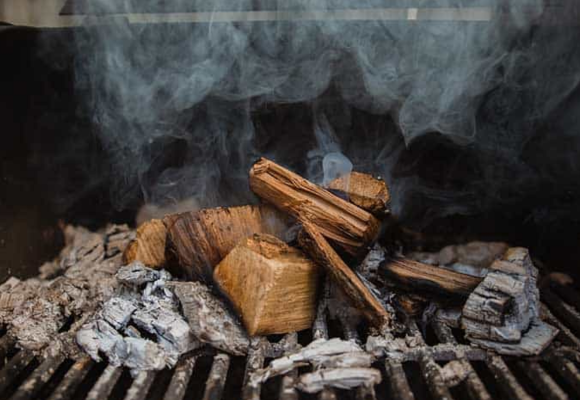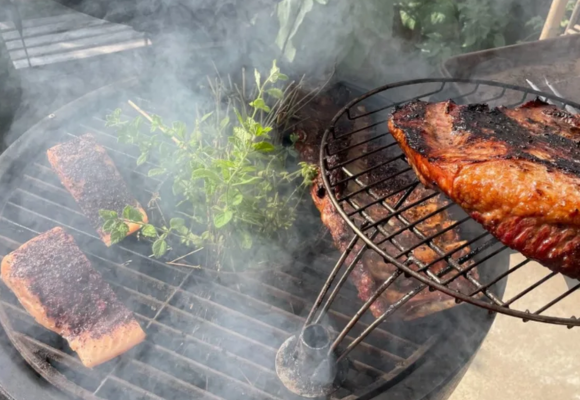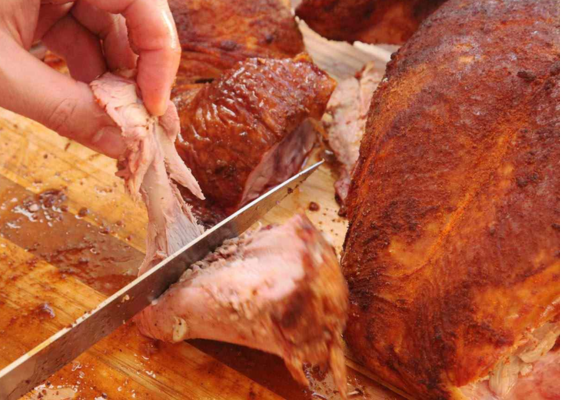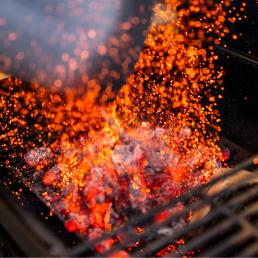When it comes to cooking, you can cook food on a grill, but with this choice, another question follows: whether to fuel the grill through charcoal or gas. But specifically, what are the dangers of match light charcoal that you must look out for?
Match light charcoal is a bit more convenient to use than the normal variety of charcoal as it quickly lights up without much effort. However, they have certain drawbacks, which may outweigh their benefits.
This charcoal is the only one that does not require an additional fluid or fuel to ignite; simply applying a match stick to the charcoal will have it burning. Hence, the explanation for the charcoal’s name- match light.
As much as convenience is offered by match light charcoal, it has certain health and environmental hazards that we will be listing while considering the dangers of match light charcoal.

The Dangers Of Match Light Charcoal
Generally, match light charcoal, if used in a directed and responsible manner, will lightly burn off the fluid completely and leave behind no harmful residue in the air or the food. However, if the use is slightly mismanaged, there can be a risk of potential health dangers.
At first glance, an individual would think of the match light charcoal as the happiest medium between a propane variety fluid and a traditional charcoal grill. Unfortunately, this assessment is falsified, and companies often use this point as a marketing tactic to make the match light charcoal seem more appealing as an upgrade from briquettes and to charge you higher prices.
Match light charcoal is quickly activated because the lumps are already mixed with an activator that could vary based on the manufacturer but is usually a petroleum product, paraffin, or another similar substance.
These activators are included before charcoal is packaged and shipped out and assist in burning the lumps immediately, generating more heat and smoke.
Major Drawbacks
There are several drawbacks of using match light charcoal, which is not only confined to you but also extends beyond you, impacting the environment.
Chemicals Leaching, Changing Food Flavor
Health is the foundation for well-being, and it is to protect this well-being that we advise you not to use match light charcoal. As mentioned earlier, this charcoal’s composition includes activators that make the charcoal’s lightning easy.

Essentially, activators are nothing but dangerous chemicals that are unsafe for use and even damaging to the body’s internals if consumed. Even when manufacturers claim that the chemicals are health-friendly, they are not.
Therefore, the flames and the smoke produced by the charcoal during grill ignition also leach into the food you are cooking and, from there, make their way into our digestive systems.
Paraffin is the most commonly utilized activator and is derived from petroleum, and is traditionally used in waxed-based products such as candles. Where paraffin can be safe in candles, it is still a cancer-causing carcinogen that should not be consumed in food through cooking over a match of light charcoal.
Costly
Compared to other types of charcoal you readily find in the market, such as charcoal lumps and briquettes, match light charcoal is expensive. The high price is associated directly with the increased quantity of lighter fluid, which results in it weighing more than average charcoal and more costs for production and transportation.
Nausea
Sometimes, when you are around the grill for a long time and persistently inhaling the released fumes or ingesting the ash from burning the match light charcoal, you might feel at unease. This happens because you feel irritated and nauseous because of the toxic and harmful released gases from the charcoal.
Food Overcooks
Another drawback of match light charcoal, which may not be intuitively classified as a disadvantage, is that it reduces the cooking time of the food due to burning bright and hot, often leading to more fire and overcooking of the meat.

Hotter flames quickly cook the food and, on the contrary, are harder to harness and control. With match light charcoal, regulating and managing temperature is very challenging, thus overcooking and charring the grilled meat.
While a handful of people may like the taste of slightly burnt meat, recent and new studies, which are still in their infancy, indicate that burnt meat is disadvantageous for health. Burned meat exhibits a positive correlation with cancer, which could be due to the consumption of overcooked meat developing much earlier than anticipated.
Fire Hazard
Match light charcoal has adverse consequences for the land and its topography. Most grills are not constructed to endure slight bumps or high wind speed and easily fall over.

This fallover of the grill can have dangerous and long-lasting implications. Suppose you are grilling, and because of high wind pressure, your grill housing matches light charcoal falls over a dry wooded area.
Then, in that case, it can result in a forest fire, which is ordinarily a natural phenomenon but can also be caused by humans, destroying and damaging entire ecosystems. Considering the burning qualities of the match light charcoal, such as the production of larger flames, it is more likely to spread fire across a varied space.
Releasing Greenhouse Gases
The atmosphere surrounding us is continuously bombarded with harmful emissions and greenhouse gases, leading to the atmospheric layer thinning and average temperatures and global warming rising.
Charcoal is one of the most harmful substances to the atmosphere and is extremely terrible for the environment. Specifically, match light charcoal contributes to the largest proportion of greenhouse gases in the atmosphere through its additive activators.
Activators are the same substances that are released from factories and through the driving of cars. Petroleum and paraffin are the two most recurring activators used in the match light charcoal and directly contribute to eroding the ozone layers.
Therefore, using match light charcoal is a reason for the earth warming up and the protective layer around it deteriorating, subjecting us to the harmful sun rays.
Conclusion
The dangers of match light charcoal are not only impacting us but also affecting the environment that we hold so dear to us. As a responsible human, it is your responsibility to look after your well-being and environment and take appropriate measures to ensure that your health remains stable while the surroundings remain protected.
Frequently Asked Questions
Is Matchlight charcoal bad for you?
Yes, match light charcoal is very bad for your health, and it impacts the atmosphere, causing it to deteriorate.
Does matchlight charcoal go bad?
If stored properly, match light charcoal has a shelf life of 1-2 years. So, to make sure charcoal lights up efficiently on the grill, keep It away from damp places.
Can match light charcoal cause cancer?
Yes, in the long run, match light charcoal can cause cancer. If you keep consuming burnt food or are consistently exposed to inhaling the gases that are released by charcoal burning, the additives in the coal may stimulate carcinogens and cause cancer.
Is instant light charcoal any good?
Besides the dangers and the drawbacks of match light charcoal, it is an excellent product that can be easily and conveniently lit without having to invest much effort or engage in hassle
